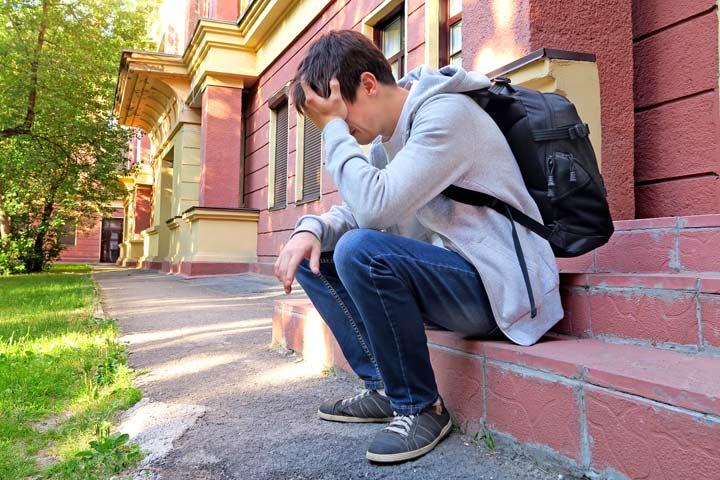Grounding Techniques for Teens Suffering From Generalized Anxiety Disorder
Generalized anxiety disorder—also referred to as anxiety—is a condition that involves much more than the ordinary stress and worry people experience in their everyday lives. Anxiety is an intense and ongoing mental health condition that makes ordinary tasks appear to be almost impossible.
Individuals who are suffering from anxiety may have a fear of social situations, flying on airplanes, advancing in their career, and just about everything else. According to the National Institute for Mental Health (NIMH), anxiety affects about 18.1% of teens and adults to some degree. This makes anxiety one of the most common mental health conditions in the United States and elsewhere around the developed world.
Many teens suffering from anxiety will need intensive forms of treatment, including inpatient or residential facilities like https://polaristeen.com/. But others—especially younger adolescents who are just beginning to experience symptoms of anxiety—may simply be looking for basic coping mechanisms and grounding techniques. Even if these individuals never seek residential treatment or even receive a formal diagnosis, these grounding techniques are proven to make a major difference.

In this article, we will discuss six of the most accessible grounding techniques for individuals suffering from generalized anxiety disorder. By taking a step back and trying to reorient yourself in the world, you can begin to overcome some of the challenges that anxiety has been causing.
- Deep Breathing Exercises
As a primary bodily function, breathing has a major impact on our overall mental well-being. Making an effort to take slow, deep breaths can help both teens and adults feel more relaxed. Thinking about positive things (your dog, favorite memories, etc.) while deep breathing will help relieve anxiety even further. In order to be ready for stressful situations as they emerge, you should practice deep breathing on a regular basis.
- Regular Yoga and Meditations
In the words of Amit Ray, “Yoga means addition—addition of energy, strength and beauty to the body, mind, and soul.” Even if you are not particularly flexible, there are dozens of yoga positions and meditations that can help instill a greater sense of grounding. Meditating outdoors will be even more productive, due to your ability to connect with nature. Individuals who are prone to anxiety should spend just a few minutes meditating at the beginning and end of each day.
- Disconnecting
One of the reasons why social media and the internet are such a frequently cited source of stress is because they are always there. Being unable to withdraw from the internet will cause you to carry these stresses wherever you may go. If someone has been experiencing symptoms of generalized anxiety disorder, making an effort to disconnect can go a long way. This is especially important for teens, who—according to the University of Essex—are 50% more likely to be depressed if they spend more than five hours per day online.
- Worry Journals
In order to cope with anxiety, it will be crucial to find a productive outlet. When our thoughts and concerns are bottled up inside, it can be very easy to turn a small source of stress into something much greater than it actually is. Writing down our concerns and using something known as a “worry journal” can make these sources of outside stress appear to be more manageable. These journals also help people track the development of their anxiety over time and also make their personal decisions a bit more carefully.
- Personal Relaxation Kits
A “personal relaxation kit” can come in many different forms and it will be up to you and your teen to find something that works. These kits may include things such as pictures of happy places, relaxing activities (such as a coloring book or puzzle), inspirational quotes, calming music, and other related items. Whenever feelings of anxiety begin to emerge these kits can help provide a “life vest” that is familiar, personal, and comforting.
- Positive Self Talk
Sometimes, saying things out loud can help us begin to change the ways we think. As is the case with writing, making an effort to say positive things out loud can help ideas evolve into something a bit more real. “I’ve got this”, “I know I can do this”, “Everything is going to be alright”, and “I control my own destiny” are just a few positive phrases that—while simple—can help an anxious individual ground their thinking. Positive self talk can also be effectively combined with meditation, yoga, and other mindfulness exercises.
What if these grounding techniques aren’t enough?
The nice thing about these grounding techniques is that they do not really have any specific risks associated with them. As your teen feels anxious, they can always try to use these techniques; if they’re eventually proven ineffective, their approach to addressing anxiety can always be readapted.
In some instances, more intensive treatment options will be necessary. These grounding techniques are often combined with various treatment modalities such as cognitive behavioral therapy and somatic experiencing. There are also many different types of anti-anxiety medications available. Speaking with a professional can help you recognize if and when a more intensive form of treatment will be needed.
Conclusion
Anxiety disorders can be very debilitating and can make living a focused and productive life much more difficult. In order for your teen to effectively cope with challenges in the world around them, it will be crucial to find a few powerful coping mechanisms. While the techniques mentioned in this article are indeed very simple, they have also had a major impact on many people’s quality of life.